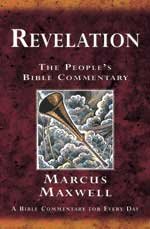There's not been an update for ages - the real world seems a bit busy at the moment, so just to make sure there's at least one entry for June, here's today's sermon (Bible reading included at no extra charge).
1 Kings 21.1-21a
1Naboth the Jezreelite had a vineyard in Jezreel, beside the palace of King Ahab of Samaria. 2And Ahab said to Naboth, 'Give me your vineyard, so that I may have it for a vegetable garden, because it is near my house; I will give you a better vineyard for it; or, if it seems good to you, I will give you its value in money.' 3But Naboth said to Ahab, 'The LORD forbid that I should give you my ancestral inheritance.' 4Ahab went home resentful and sullen because of what Naboth the Jezreelite had said to him; for he had said, 'I will not give you my ancestral inheritance.' He lay down on his bed, turned away his face, and would not eat.
5His wife Jezebel came to him and said, 'Why are you so depressed that you will not eat?' 6He said to her, 'Because I spoke to Naboth the Jezreelite and said to him, "Give me your vineyard for money; or else, if you prefer, I will give you another vineyard for it"; but he answered, "I will not give you my vineyard."' 7His wife Jezebel said to him, 'Do you now govern Israel? Get up, eat some food, and be cheerful; I will give you the vineyard of Naboth the Jezreelite.'
8So she wrote letters in Ahab's name and sealed them with his seal; she sent the letters to the elders and the nobles who lived with Naboth in his city. 9She wrote in the letters, 'Proclaim a fast, and seat Naboth at the head of the assembly; 10seat two scoundrels opposite him, and have them bring a charge against him, saying, "You have cursed God and the king." Then take him out, and stone him to death.' 11 The men of his city, the elders and the nobles who lived in his city, did as Jezebel had sent word to them. Just as it was written in the letters that she had sent to them, 12they proclaimed a fast and seated Naboth at the head of the assembly. 13The two scoundrels came in and sat opposite him; and the scoundrels brought a charge against Naboth, in the presence of the people, saying, 'Naboth cursed God and the king.' So they took him outside the city, and stoned him to death. 14Then they sent to Jezebel, saying, 'Naboth has been stoned; he is dead.'
15As soon as Jezebel heard that Naboth had been stoned and was dead, Jezebel said to Ahab, 'Go, take possession of the vineyard of Naboth the Jezreelite, which he refused to give you for money; for Naboth is not alive, but dead.' 16As soon as Ahab heard that Naboth was dead, Ahab set out to go down to the vineyard of Naboth the Jezreelite, to take possession of it.
17Then the word of the LORD came to Elijah the Tishbite, saying: 18Go down to meet King Ahab of Israel, who rules in Samaria; he is now in the vineyard of Naboth, where he has gone to take possession. 19You shall say to him, 'Thus says the LORD: Have you killed, and also taken possession?' You shall say to him, 'Thus says the LORD: In the place where dogs licked up the blood of Naboth, dogs will also lick up your blood.'
20Ahab said to Elijah, 'Have you found me, O my enemy?' He answered, 'I have found you. Because you have sold yourself to do what is evil in the sight of the LORD, 21I will bring disaster on you; I will consume you, and will cut off from Ahab every male, bond or free, in Israel.'
Ahab could arguably be termed a progressive king. He looked to the modern world, and matched it. He forged a favourable alliance - cementing it by marriage, as was the custom of the day. He opened new trade routes, promoted religious tolerance and modernised the government. He enjoyed his relationship with his powerful neighbour to the north, and saw himself as a serious player on the world scene.
When he wanted to expand his property, he made a perfectly reasonable proposal - buy his neighbour's property at above market value, and both would be happy. Naboth would make a fat profit, and Ahab would have more room in a convenient locale. Much more acceptable than our practice of compulsory purchase by local authorities.
But he ran into an obstacle. It was an old, outmoded rule; no one was allowed to sell their ancestral property in Israel, on the rather silly grounds that it had been the gift of God and wasn't for buying and selling. And, of course, it protected the poor from being dispossessed by the wealthy. Though in this case, there could be no question of that, could there?
But here is Naboth, clinging to the old ways, and insisting on living in the last century or two.
Ahab, for all his progressive bent, isn't a terribly mature man. He goes home and sulks. In fact, not only is he childish, but he's got an old-fashioned streak as well. When the old ways are quoted to him, he caves in. He may sulk, but he doesn't quite have the stomach to set aside the old laws.
But Jezebel simply doesn't understand this. What's the point of being a king if you can't get your own way? So she fixes it. Power is there to be used, and there are plenty of forward thinking people who know which way the wind is blowing, and are not going to make too much fuss. In fact, they'll more than go along with it - they'll be a part of it.
And so Naboth is dead.
It's all so petty, of course. A misuse of power in the service of personal gain. But it's a ploy that we're familiar with.
Suppose it was something of greater importance. Suppose it was not about Ahab's garden, but something which might be of national importance; that Naboth might be standing in the way of national security, or the war on terror, or an alliance with a friendly nation in an unstable part of the world. Would it be all right then, to frame and murder him?
Could he perhaps be extraordinarily rendered somewhere to be asked pointed questions? Or could he be imprisoned without trial or legal representation, on some distant island, for years at a stretch? Could he have his civil liberties curtailed, or his right to expect, say, that businesses which offer unthinkably huge bribes to corrupt foreign princes be prosecuted?
Ahab can pretend he didn't really know what was going on - Jezebel didn't actually say what she was going to do - it's called plausible deniability. And no questions need be asked afterwards - the situation is happily resolved.
Except that Naboth is dead, and the king has taken on all the trappings of a Mafia don. Or simply a head of state - the king who was called to be the protector of Israel, and the upholder of God's laws has become a typical Oriental despot. He has fallen in with the way of the nations around, become a hanger-on of the great and powerful and a failure in every way that matters.
It's no wonder that when he encounters his old adversary, Elijah, he greets him as his enemy.
Elijah stands for the old ways, which preserved the rights and the worth of all the people of Israel. He stands for the old tribal laws which extended protection and courtesy not just to members of the twelve tribes, but to the stranger and the exile as well.
They are also, of course, God's laws. And Ahab is about to find that they are flouted at peril of his life and his dynasty. Thank goodness it's a story from long ago, and far away. It would be disturbing indeed to suppose it might have anything to say to us, here and now.
Saturday, 16 June 2007
Subscribe to:
Post Comments (Atom)


No comments:
Post a Comment